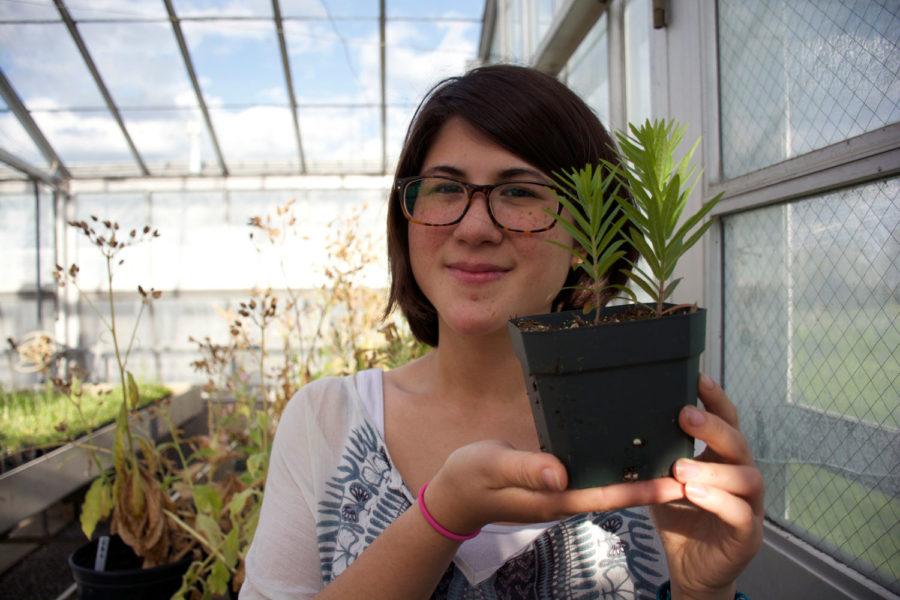Students gift flowers to save bees
April 20, 2015
April showers bring May flowers and habitat destruction is killing our bees.
Some students are trying to increase awareness of dwindling wildflower populations in an effort to help restore bee communities, as the two are intrinsically tied to one another.
Students Embracing Nature, Sustainability and Environmentalism, or S.E.N.S.E., is a Registered Student Organization that is giving away hundreds of free native flowering plants Tuesday from 11 a.m. to 2 p.m. in the Faner Hall breezeway and Wednesday 11 a.m. to 2 p.m. outside Lawson Hall.
Advertisement
Members from S.E.N.S.E. will be gifting flowering plants — such as Purple Cones, Black Eyed Susan’s, and several species of milkweed — to anyone who wants one.
“All three of those are good for attracting bees and butterflies,” said Sedonia Sipes, associate professor of plant biodiversity and conservation biology. “But the bees are doing most of the pollinating.”
Sipes said most native plants and food crops are insect-pollinated.
“Without pollinators we won’t have a lot of flowering plant species that are important in wild ecosystems, as well as cultivated plants that are important to us,” she said. “The most important pollinator are bees — by far.”
Pollen and nectar are food for bees, providing protein and energy. Without wildflowers or cultivated varieties in their place, the bees will die because of the destruction of their floral resources and nesting regions.
Sipes said many people blame companies such as Monsanto, who produce herbicide and genetically modified crops, for collapsing bee communities, but they are not the only factor.
“All bees tend to be very sensitive to pesticides,” Sipes said. “[However] the most important problem facing our native bees is probably habitat destruction.”
Advertisement*
Sipes said that row cropping — growing cops like corn in rows to allow for mechanical cultivation — can render land void of the wildflowers pollinators need for survival.
“There are ways you can do agriculture and leave little fragments of native vegetation,” Sipes said. “But a lot of times, it is not done that way.”
Tricia Walker, a junior from Palatine studying plant biology, said native species are both beneficial to pollinators and ecosystems as a whole.
“Illinois used to be covered in prairie, now there is less than one percent of the prairie that used to exist,” said Walker, who is president of S.E.N.S.E. “This used to be a really big pollinator hot-spot.”
She said because of the large amount of corn grown in Illinois, bees do not have as many plants to pollinate as they once did.
Walker said bees are responsible for 70 percent of fruit production, and if we lost them the plants would need to be pollinated by hand, steeply driving up the labor cost of producing fruits.
“It’s estimated that bees do millions of dollars [annually] of free labor for people involved in fruit production,” she said.
Besides costing people millions, if bees go extinct it could change human life.
If the bees die off, the earth will struggle to maintain its current population and supermarkets will only have half as much produce as they do now, according to BBC.
Sipes said students can plant native flowers and refrain from mowing the wildflowers in their lawn to encourage a prosperous bee community.
Sam Beard can be reached at [email protected]
Advertisement







